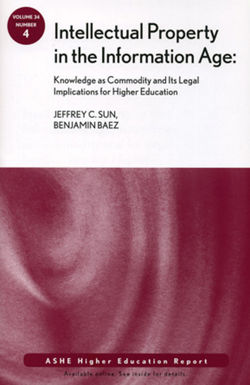Описание книги
This monograph pays special attention to the intellectual property of copyrights and patents. It examines how legal parameters, competing interests, and technological advances take shape in economic, political, and social contexts that require colleges and universities make intellectual property central to their operations. Economic, political and social forces are redefining knowledge as property that can be owned, and institutions of higher education, as producers of knowledge, are central participants of this phenomenon. Debates about intellectual property are rampant, some arguing that knowledge should not become a commodity for exchange, others than intellectual property fosters innovation in society. What is not debatable is the importance of the law for resolving disputes about intellectual property. Today, the evolving legal context association with intellectual property and technological advancements have created competing interests and demands from individuals, institutions and even nation. The law is often the realm in which these interests and disputes take place, with more or less satisfying results. Colleges and universities must grapple with not only complex legal issues but also the philosophical and political consequences associated with the conversation of intellectual acts into property. This is the fourth issue in the 34th volume of the Jossey-Bass series ASHE Higher Education Report. Each monograph in the series is the definitive analysis of a tough higher education problem, based on thorough research of pertinent literature and institutional experiences. Topics are identified by a national survey. Noted practitioners and scholars are then commissioned to write the reports, with experts providing critical reviews of each manuscript before publication.
